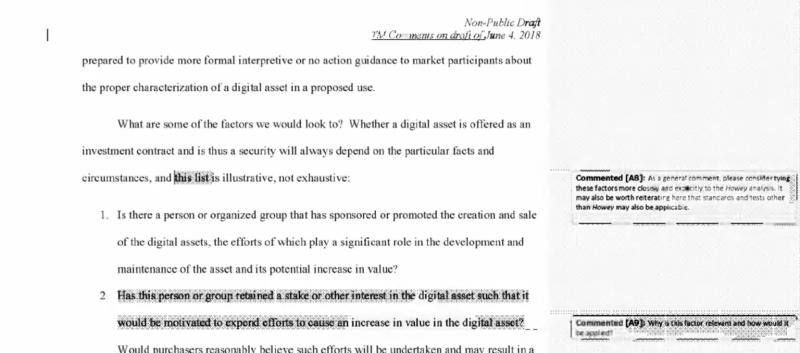How will the revelations in the Hinman emails play out for Ripple and Coinbase in their SEC court battles? Legal experts weigh in.
Jeffrey Blockinger, chief legal counsel at decentralized exchange Vertex Protocol, said that the emails do not impact the Howey portion of the SEC’s case. Instead, he said the bickering over how to approach digital assets likely provides ammunition for "those looking to create political problems" for the agency.
“Even in 2018 the digital asset industry was already a pretty significant industry and you still see the SEC struggling with how to position itself," Blockinger told Decrypt. "It shows a certain uncertainty within a regulator that presents itself as one-minded and absolutely certain that it's correct.”
Already Ripple and Coinbase executives have made this point in the wake of the email release, with Ripple's chief legal officer Stuart Aldertoy calling for an investigation into Hinman and the SEC. Coinbase chief legal officer Paul Grewal also seized on the emails, touting them as proof that securities laws are ill-designed to regulate all digital assets.
"Unelected bureaucrats must faithfully apply the law within the constraints of their jurisdiction," wrote Alderoty in a tweet. "They can’t—as Hinman tried—create new law."
Ripple's case could come to a close as soon as this year, and with its conclusion answer questions about the SEC's authority over crypto. If Ripple wins, it would bolster Coinbase’s own odds and create some clarity for the industry going forward, said Alan Silbert, the North America CEO of crypto exchange INX.
Though he noted his own firm is federally registered, Silbert said he still finds the SEC’s current approach concerning. The executive expressed hope a resolution to the Ripple case would establish some precedent to restrain the agency's enforcement.
“Anything helps,” Silbert told Decrypt. “This current M.O. of declaring what securities are in lawsuits over rules is a poor way to execute.”
But even if Ripple is victorious, that may not mean the SEC will change tact—which is to say, the Coinbase lawsuit will continue. Federal judges are only bound by precedents set by appellate courts and any outcome from a district court would not be binding on the SEC.
Without any concrete clarification, Blockinger said that the SEC will likely keep pursuing crypto firms with enforcement. And in the current regulatory environment, it only needs one victory to have a dramatic effect.
“If the SEC only needs one coin named a security to win, it looks like they have 258 chances,” said Blockinger, referring to the number of tokens traded on Coinbase. “I think if you’re in Vegas, a lot of people would take these odds.”
